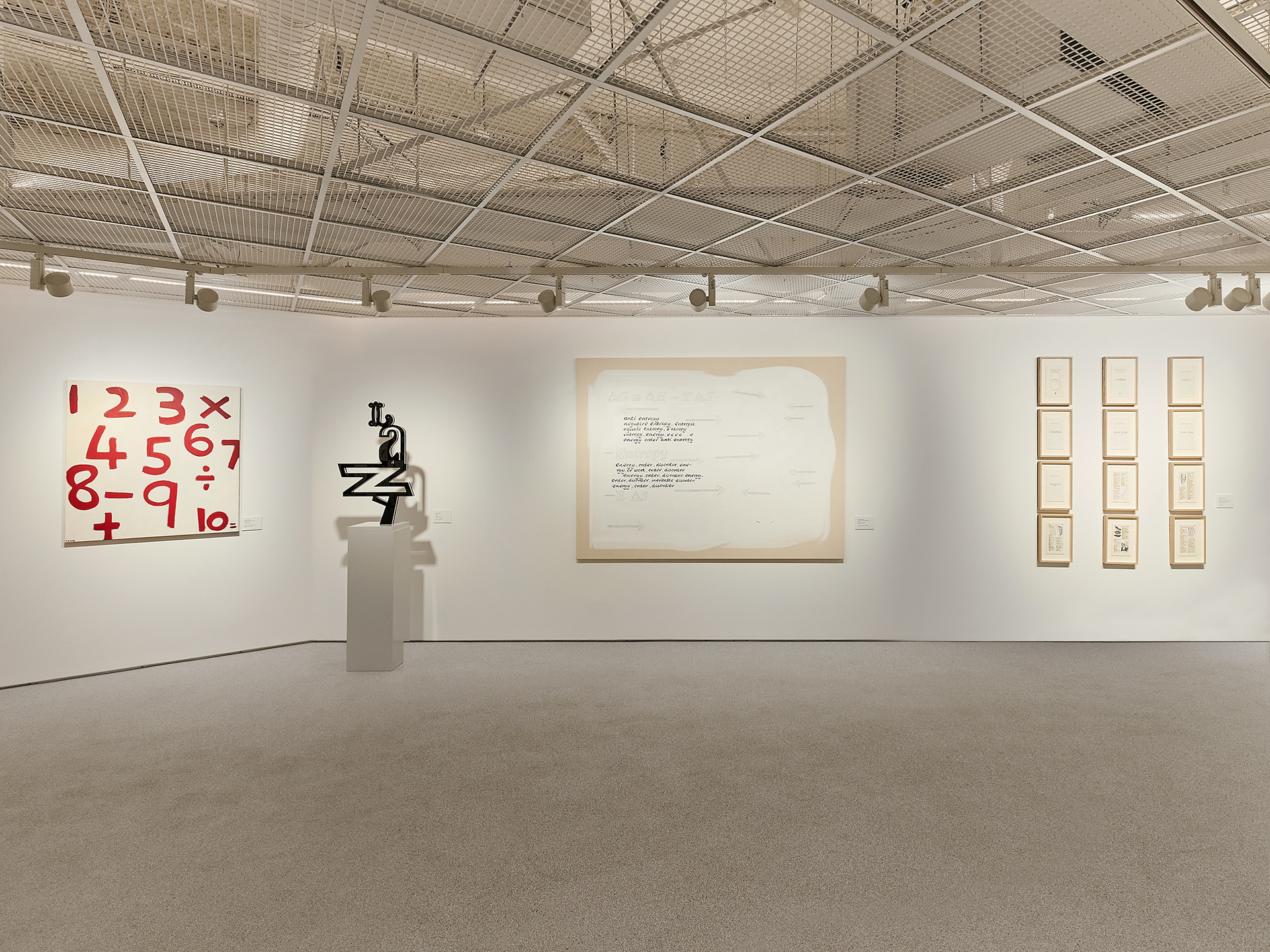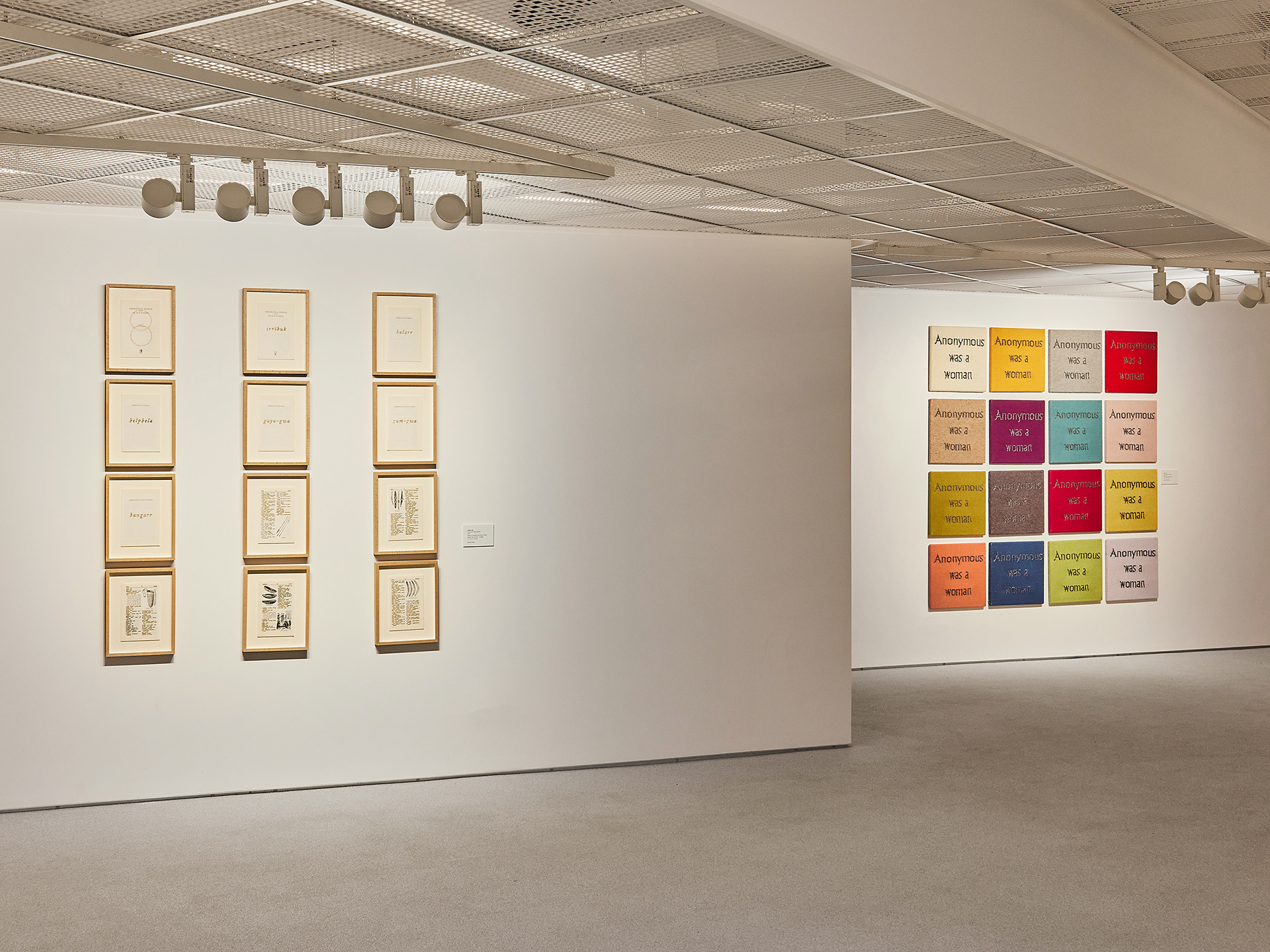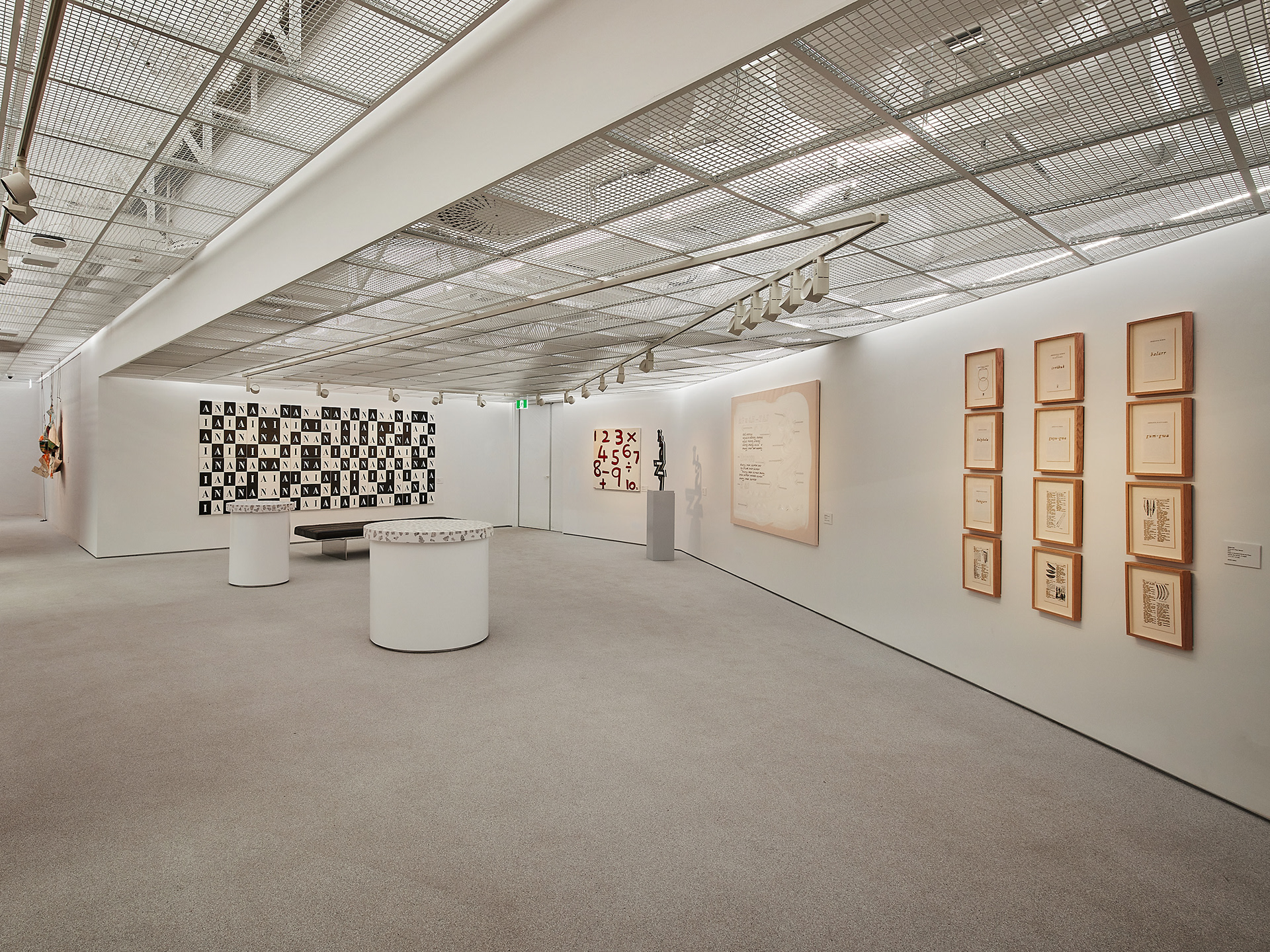TEXT IN/AS ART
7 November 2022 - 20 January 2023
ANZ Level 10 Gallery
Curated by James Makin Advisory
ANZ Level 10 Gallery
Curated by James Makin Advisory
Clinton Naina, Jenna Lee, Kate Just, Jon Campbell, Nell, JD Reforma, Nadia Hernàndez, Ruark Lewis, Angela Brennan,
JD Reforma, and Jason Phu
JD Reforma, and Jason Phu
"This series applies processes of regenerate elemental deconstruction (fire) to alter pages of the book ‘Aboriginal Words and Place Names’ - a book with versions still published today - in order to heal the misrepresented words and re-write words of ecosystems of importance and fire methods in Gulumerridjin (Larrakia) language." - Jenna Lee



Images: Henry Trumble
Words from the catalouge essay by Laura Kirkham
Words from the catalouge essay by Laura Kirkham
Jenna Lee’s Words, and Place Names, 2022 similarly draws upon the personal history of the artist to reconfigure constructs of language and meaning. However, where Arnold explicates the poetic convergences of research and aesthetic, Lee uses text-based practice to disorder and reconfigure the archive and colonial history. A Gulumerridjin (Larrakia), Wardaman and KarraJarri Saltwater woman with mixed Japanese, Chinese, Filipino and Anglo-Australian ancestry, Lee uses art to explore and celebrate her many overlapping identities. Lee ritualistically analyses, deconstructs and reconstructs source material, language and books, transforming them into new forms of cultural beauty and pride, and presenting a tangibly translated book.7 Driven to create work in which she, her family, and the broader mixed First Nations community see themselves represented, Lee builds on a foundation of her father’s teachings of culture and her mother’s teachings of papercraft.8
Lee’s work is a significant project in the light of colonial archives. The archive is a mechanism of recording the past that is tied to empirical values of certification and universal truth. Emerging as a dominant epistemological approach during the Enlightenment period, empirical knowledge sought to override subjectivity to uncover an undeniable, certifiable, and universal ‘truth’ of history.9 Despite its claim to objectivity, history’s hegemony of the ‘the empirical’ arose in conjunction with European colonisation. Moreover, an empirical system of ordering history facilitated the conquest of European culture and history over colonised nations – empirical evidence relied upon certification by qualification given by, or certified by, the European academy.10 So, where history’s archives have only seen value in evidence and testimony that could be certified by this model, it followed that all histories and cultures that lay outside of it were excluded from direct participation with history. Lee’s use of text to assert her own history and culture in the archive productively challenges this pervasive aspect of the archive.
7 “Jenna Lee: Available Works,” [MARS]. https://marsgallery.com.au/jenna-lee_available-work/
8 “Jenna Lee.”
9 Risbjerg Eskildsen, Kasper. “Inventing the Archive, Testimony and Virtue in Modern Historiography.” History of the Human Sciences 26, no. 4 (2013): 9-12.
9 Risbjerg Eskildsen, Kasper. “Inventing the Archive, Testimony and Virtue in Modern Historiography.” History of the Human Sciences 26, no. 4 (2013): 9-12.
10 Pollock, Griselda. Encounters in the Virtual Feminist Museum: Time, Space and the Archive (London: Routledge, 2007), 17.